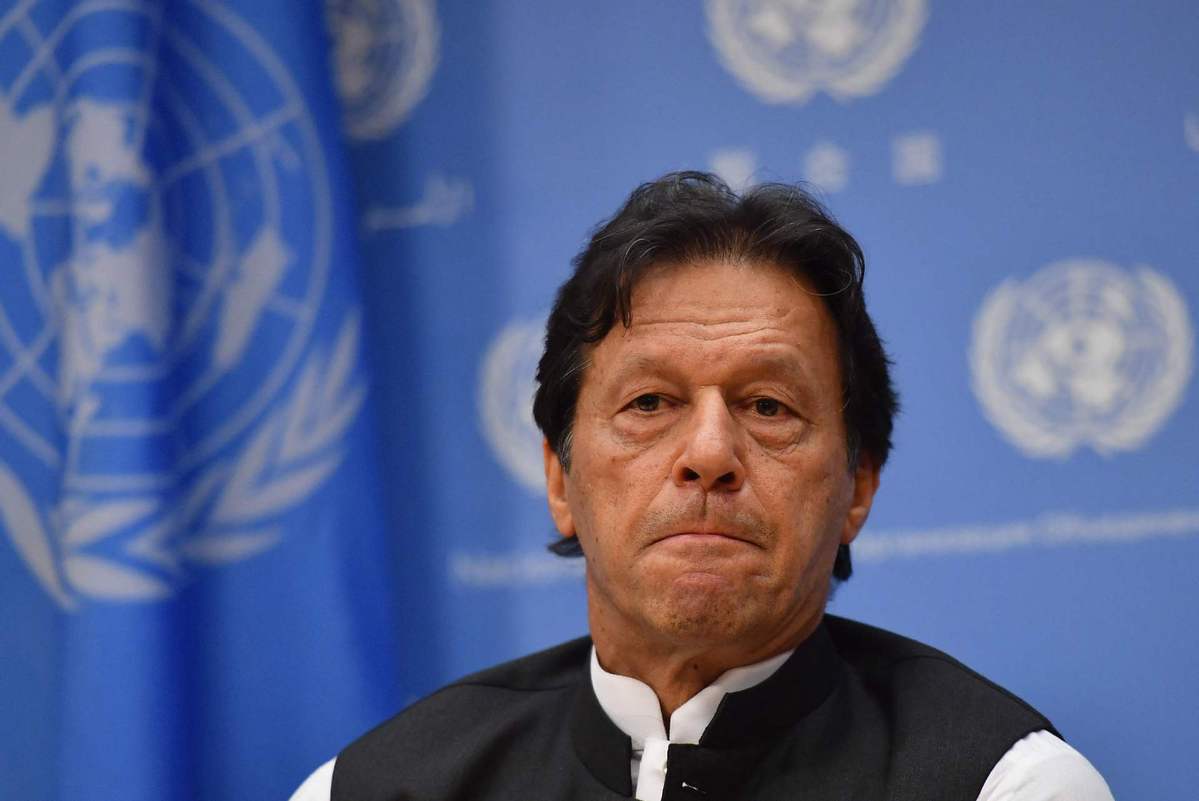【China Daily】Pakistani PM ousted in confidence vote

A parliamentary vote of no confidence in Pakistan early on Sunday that brought down the Prime Minister, Imran Khan, made him the country's first prime minister to fall to such a fate.
The vote on the country's Constitution Day that ended the former international cricketer's tenure was just the latest installment in a saga in which those in the post fail to complete their five-year term.
Sardar Ayaz Sadiq, a member of the National Assembly, said the motion against Khan, 69, had obtained 174 votes, two more than the majority required for it to be adopted, the Pakistan Observer reported.
The assembly will convene on Monday to elect a new prime minister, Sadiq said.
The opposition leader Shehbaz Sharif, brother of the three-time prime minister Nawaz Sharif, is a candidate as prime minister, the newspaper Dawn said.
A special session of the National Assembly that began at 10:30 am on Saturday was adjourned, and in a cabinet meeting at 9:30 pm Khan was said to have vowed he would "fight till the last ball" to win the vote.
The session resumed after the assembly Speaker, Asad Qaiser, resigned from his post less than 20 minutes to midnight, allowing Sadiq to chair the session.
MPs from the ruling Pakistan Tehreek-e-Insaf party walked out of the house and did not take part in the vote.
In a television address late on Friday, Khan said he was disappointed with a ruling by the country's Supreme Court that declared a ruling by the deputy speaker of parliament unconstitutional.
'Foreign conspiracy'
He would not recognize "an imported government", he said, suggesting a move to topple his government was the result of a foreign conspiracy. Since late March he and his allies have repeatedly alleged that the US threatened to remove him as he tried to keep an independent foreign policy.
"I'm ready for a struggle," said Khan, who called for peaceful protests on Sunday.
An opposition alliance presented the no-confidence motion against Khan in the National Assembly on March 28.
Five days later President Arif Alvi dissolved the National Assembly on Khan's advice under Article 58 of the Constitution, Dawn reported. The deputy speaker of the National Assembly rejected the no-confidence motion, alleging foreign involvement in the conspiracy to topple the government.
On Thursday the Supreme Court declared the deputy speaker's action a violation of the constitution. It ordered the National Assembly to reconvene on Saturday and hold a vote on the motion of no confidence.
The house was expected to send the result of the motion later to the country's president for approval and permission to start the process to elect a new prime minister.
Senator Faisal Javed Khan of the Pakistan Tehreek-e-Insaf party wrote on Twitter after seeing Khan minutes before Khan lost the vote: "Just saw off Prime Minister Imran Khan from Prime Minister House. He walked out gracefully and didn't bow down. He has lifted the entire nation."
According to the website Diplomat, Khan became "a staunch critic of US drone strikes in Pakistan", even before becoming prime minister and campaigned against such attacks.
According to the Arab News website, the longest term of any of 29 Pakistan's prime ministers since 1947 has been four years and two months, and the shortest two weeks. Khan's tenure was three years, seven months and 23 days. He was elected prime minister of the world's second-largest Muslim country on Aug 18, 2018.
Two previous prime ministers had survived no-confidence votes, Shaukat Aziz in 2006 and Benazir Bhutto in 1989.
Xinhua contributed to the story.

